Insights

Pickleball Injuries: Why Clubs, Leagues, and Schools Need Participant Accident Insurance
Pickleball has gone from a casual pastime to a full-blown phenomenon. According to the Sports and Fitness Industry Association, player numbers have exploded from 3.5 million in 2019 to an estimated 22 million in 2025. It’s fast, fun, and draws players across every age group, but its rapid rise also fuels an unexpected trend: a sharp increase in injuries and related medical costs. For sports clubs, school leagues, and community organizations offering pickleball, this...

MiniCo Insurance Named Best of Business in Self-Storage Commercial Insurance for 13th Year
For the thirteenth consecutive year, MiniCo has claimed the top spot in self-storage commercial insurance. MiniCo Insurance (MiniCo), a Jencap company, has been selected by readers of Inside Self-Storage magazine as a Best of Business winner in the category of best commercial insurance for the thirteenth consecutive year. “It is an honor to be...
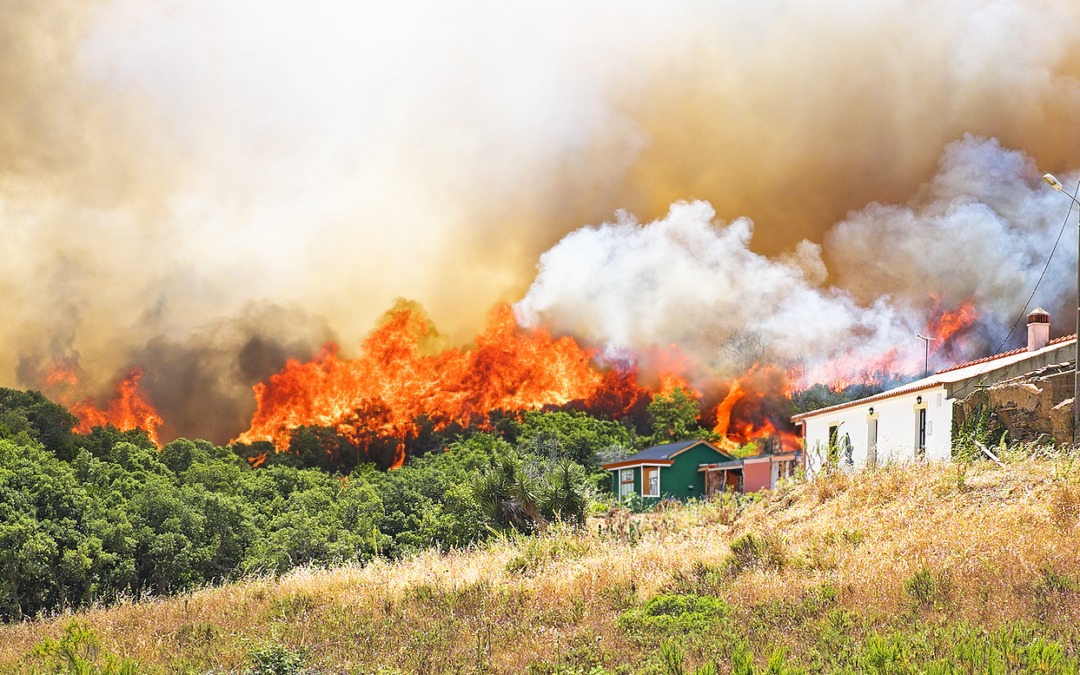
Navigating the 2024 Wildfire Season
As we approach the heart of the 2024 wildfire season, property owners and insurance agents face unprecedented challenges. The increasing frequency and intensity of wildfires and other extreme weather events are putting significant pressure on the property insurance market. Let’s look at the current wildfire outlook, its impact on the insurance...

Managing Professional Liability in a Changing Market
Navigating the world of professional liability insurance can feel daunting, especially in today’s turbulent market. With rising premiums, increased scrutiny, and ever-evolving risks, staying ahead of the curve is more challenging than ever. However, understanding these dynamics and leveraging the right insurance solutions can help make all the...

The Impact of Nuclear Verdicts on Small Legal Practices: A Guide for Insurance Agents
In 2023, Bayer AG faced a staggering $2.2 billion verdict over its Roundup weedkiller, contributing to record-setting numbers. These monumental awards, known as nuclear verdicts, pose a significant threat to businesses of all sizes. But how do these types of verdicts affect the law firms involved? In this blog, we’ll explore what nuclear verdicts...

The Ultimate Guide to Lawyers Professional Liability Insurance
As an insurance agent, you know that legal professionals face unique risks every day. Your clients depend on you to help them navigate these complexities and secure the best coverage. Professional liability insurance isn’t just a safety net; it’s a critical part of practicing law. Let’s explore the options for Lawyers Professional Liability (LPL)...

Bridging the Gap: Customized Policy Solutions for Emerging Nonprofit Needs
Nonprofit organizations are the unsung heroes of our communities, tackling society’s biggest challenges and providing essential services. However, running a nonprofit comes with unique operational, financial, and legal hurdles that for-profit businesses don’t face. One significant challenge is finding the right insurance coverage. The Unique Risk...

Leveraging Risk Management Resources for Nonprofit Organizations
Nonprofit organizations play a pivotal role in our society, addressing crucial issues ranging from social welfare to environmental conservation. However, managing a nonprofit involves navigating a maze of risks that can threaten its mission, resources, and public trust. Effective risk management for nonprofits is not just about protection. It...

Navigating New Horizons: Future Challenges for Nonprofits
The nonprofit sector is constantly evolving, and with this evolution comes many new challenges. From embracing digital transformation to navigating increased regulatory pressures and adopting innovative insurance solutions, nonprofit organizations must stay agile and proactive. As their agent, you can help them prepare for the future. Be the...
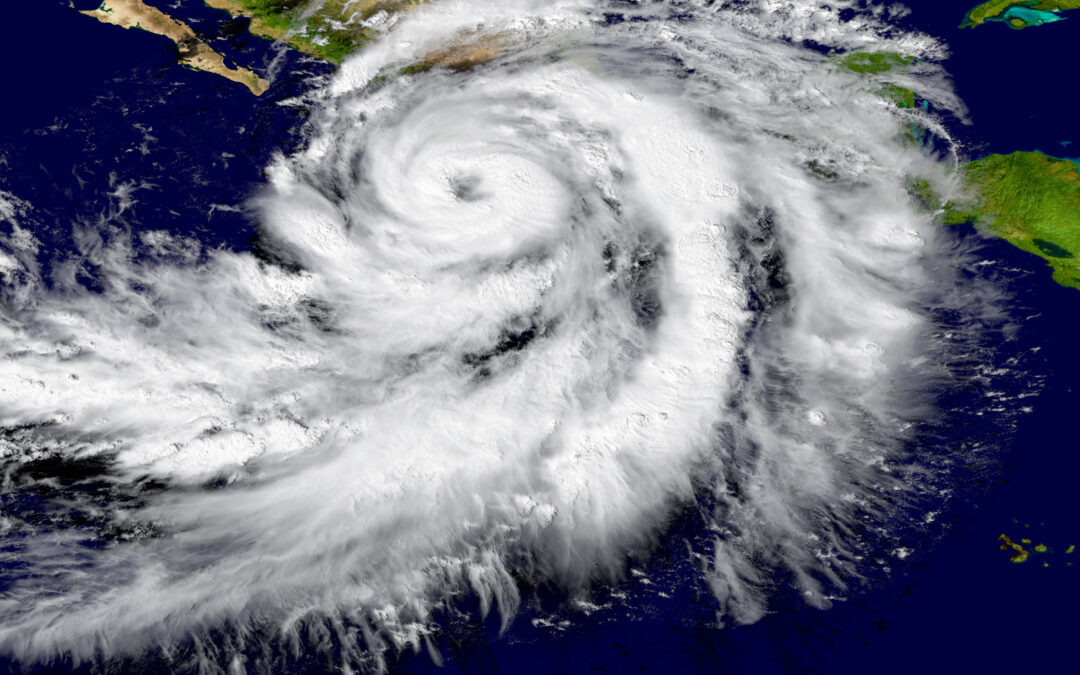
Aggressive Predictions: Weathering the 2024 Hurricane Season
The Tropical Weather and Climate Research department at Colorado State University (CSU) is one of the world’s most respected climate research teams. Beginning each April, the team issues periodic tropical meteorology forecasts that have become must-reads for anyone interested in Atlantic hurricane activity. While the April 2024 forecast was...

What HNOA Insurance Covers That Traditional Auto Does Not
Finding out you’re on the hook for huge financial damages — and that your insurance policy won’t cover it — is every business’s worst nightmare. Just ask Metallica (yes, the band!) about the dangers of not knowing exactly what your policy covers – and what it excludes. Thanks to a pandemic-related debacle, the band sought to recoup millions of...

Safe and Sustainable Growth Strategies for Food and Cannabis Delivery Operations
The burgeoning cannabis delivery industry, like the food industry, has seen exponential growth, driven by increasing legalization and consumer demand. Yet, as many delivery business owners know all too well, with growth comes the challenge of effectively scaling operations. Delivery issues—like delays, regulatory compliance missteps, or customer...

Safe Delivery, Safer Business: Mitigating Risks in Food and Cannabis Delivery
Mitigating risks in food and cannabis delivery is not just about adhering to legal standards; it’s about safeguarding the business, its customers, and the broader community from unforeseen disasters. By understanding and addressing the unique challenges food and cannabis delivery drivers face, businesses can proactively ensure the safety of their...

Hidden Hazards: Identifying and Insuring Common Self-Storage Property Exposures
Self-storage facilities may look like typical brick-and-mortar business operations from the outside — but, when it comes to insurance coverage, they’re not. The truth is, with their distinct property exposures, self-storage facilities require a different approach to insurance coverage, one that accounts for their specific vulnerabilities. ...

How to Navigate Slip, Fall, and Injury Risks for Self-Storage Facilities
Self-storage facilities, sometimes perceived as low-risk environments, can unexpectedly become targets for liability issues, particularly in the category of slip, fall, and bodily injury claims. Picture this: An excited college student, arms full of boxes, takes a serious fall while walking down an interior hallway to their rented unit due to a...
Meeting the Growing Need for Expert Self-Storage Insurance
The self-storage industry has grown rapidly in the past several years, reaching an estimated market value of $44.37 billion, outpacing many other notable companies like Aflac, General Mills, Humana, and even 7-Eleven. The reason? People love their stuff — and they don’t want to part ways with it. According to Josh Leykam, MiniCo Vice...
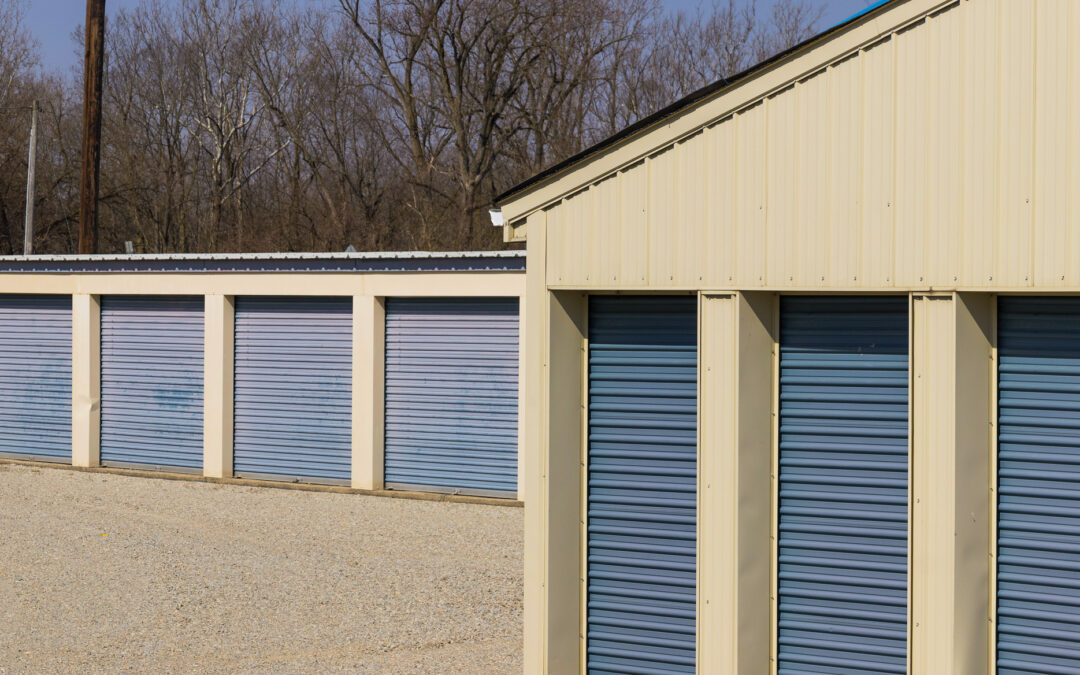
Decoding Specialty BOPs: Tailored Insurance to Mitigate Self-Storage Risks
Most business owners understand the importance of having the right general liability (GL) insurance. What they may not know is that their GL policy isn’t all-inclusive and doesn’t provide protection for losses associated with business personal property as well as other critical coverages. A business owner’s policy (BOP) is an effective option for...

Collection Preservation: The Collector’s Path to Peace of Mind
From rare artwork to wine to unique memorabilia, the world of collecting is both varied and ever-evolving, demanding a strategic approach to collection preservation. A collector’s worst fear is damage to or loss of a priceless, irreplaceable item or collection. For the savvy collector, implementing effective risk mitigation and preservation...

The Art of Restoration with Specialty Insurance
When most collectors think of fine arts insurance, they may imagine disasters brought on by major events like fires, floods, and theft. However, the most common perils that threaten unique art collections are far more subtle: a poorly hung painting that falls to the ground or a simple scratch due to improper handling. Unlike the expectations with...

The Art of Security: Safeguarding High-Value Investments with Collectibles Insurance
In the world of fine art, collectibles insurance is where passion meets investment, which makes ensuring the safety of your client’s valued treasures a tricky business. The reason? Collectors want to know they are preserving not only the monetary value of their collectibles but also the items’ sentimental and historical significance. As a result,...
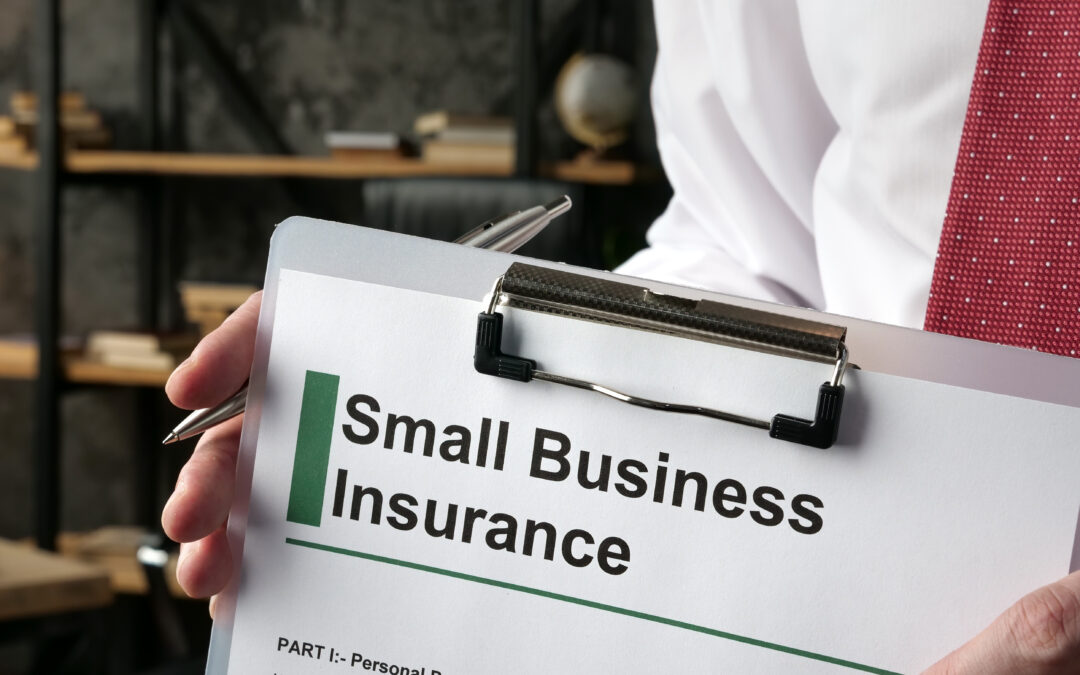
Navigating the Underinsurance Crisis for Small Businesses
Small businesses may not get the same level of media attention as larger Fortune 500 companies, but they’re quietly working away to bolster the economy, provide jobs to millions, and navigate the underinsurance crisis. Businesses with fewer than 50 employees account for 45% of all private sector jobs and keep roughly 56 million Americans...
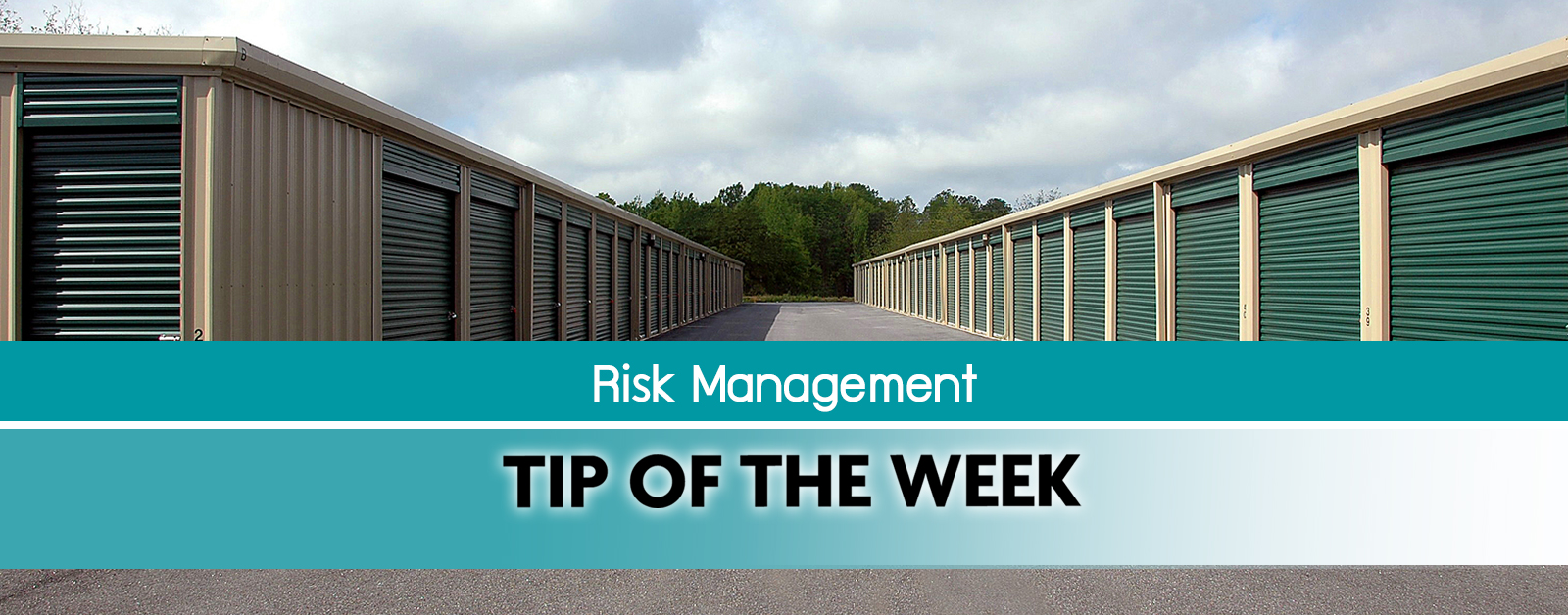
Top 5 Cybersecurity Threats
Self-storage facilities can be prime targets for cybercriminals who can use customer information to rob bank accounts via wire transfers, steal customers’ personal identity information, and commit other fraudulent activities. In general, many small businesses are vulnerable to data breaches for three key reasons: · They don’t believe they...
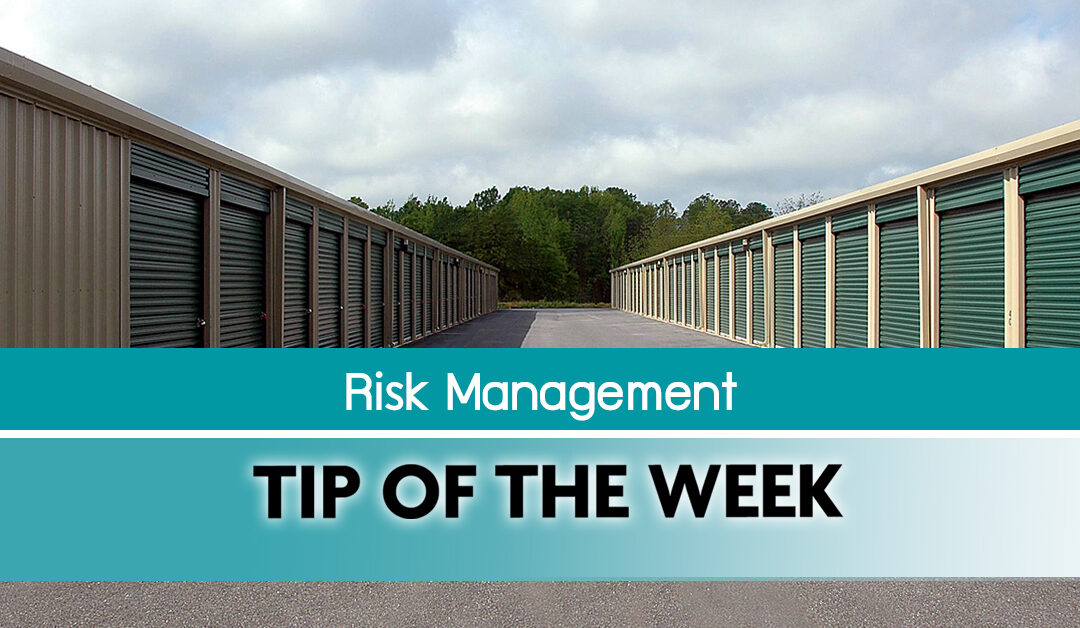
Flood Hazards
In the aftermath of a flood, there are a number of hazards that you may encounter. The Occupational Safety and Health Administration (OSHA) identifies the following hazards associated with floods.· Electrical hazardsTree and debris removalLifting injuriesMoldRodents, snakes, and insectsChemical and...

Flood Watch vs. Flood Warning
Which flood alert is more critical – a watch or a warning? It's important to know the differences in the warning system alerts and understand the appropriate action to take for each alert level. Flood Watch Meaning: Flooding is possible. Action: Monitor radio and television stations for more information. Flash Flood Watch Meaning: Flash flooding...

Flood Evacuation Planning
The growing frequency and severity of weather events such as wind, hail, and torrential rain can increase the risk of flooding. Before flood waters approach your self-storage facility, make sure to put an evacuation plan in place to ensure your personal safety and that of your employees and customers. A thorough evacuation plan should include:...

Safety After a Wildfire
The hazards associated with wildfires may persist even after the flames have been extinguished. Here are some tips for staying safe after a wildfire. · Monitor information from authorities as to when it is safe to return to an area and whether water is safe to drink. · Avoid hot ash, charred trees, and smoldering debris. · Wet down debris to...

Communicating With Tenants About Fire Prevention
September is National Preparedness Month, and creating a communications plan is a top priority when it comes to fire prevention at a self-storage facility. Regular communication to customers can go a long way toward mitigating the risk of fire on the property. Examples of tenant communication include the following: Signage: Post “no smoking”...

Creating a Defensible Space Against Wildfires
One of the most important and cost-effective steps you can take to mitigate the risk of wildfire damage at your self-storage operation is to create and maintain a defensible space around the facility. This is a zone in which vegetation, debris, and other combustible fuels have been cleared, minimized, or treated with the goal of slowing the...

First Aid for Heat-Related Illness
If you suspect that an employee or tenant is showing the symptoms of heat exhaustion or heat stroke, it is important to take action quickly. Time is of the essence in order to minimize the risk of serious injury or death. First aid actions for heat-related illness: Call a supervisor or co-worker for help. If no one is available, call 911.Have...

Happy National Safety Month!
June is National Safety Month, and the National Safety Council (NSC) is marking the occasion by focusing on workplace safety education and awareness. The most recent data from the Bureau of Labor Statistics is from 2020, and the NSC's analysis of the numbers indicates that workplace injuries are on the rise. In 2020, nonfatal injuries that...

Safety After a Tornado
Once a tornado has passed, it is important that you take steps to stay safe while navigating the debris and damage left behind. Here are some tips to keep in mind. Get HelpCover your mouth with a cloth to avoid breathing dust. If you are trapped, try to send a text, bang on a pipe or wall, or use a whistle to summon help. If you are not...

Electrical Safety and Hurricanes
The Atlantic hurricane season runs from June to November, and severe storms can strike across the country at any time. The storm preparation checklist for your self-storage facility should include electrical safety considerations. The Electrical Safety Foundation International (ESFI) offers recommendations for before, during, and after a...

Floods and Electrical Safety
Over the past five years, all 50 states have experienced floods or flash floods, and, on average, more deaths occur due to flooding each year than any other weather-related hazard. Safety precautions during floods should include considerations for electrical safety. Guidance from the Electrical Safety Foundation International (ESFI) includes the...

Pre-Wildfire Planning
The Department of Homeland Security's website www.Ready.gov, recommends the following steps to prepare for wildfires. Stay Informed Sign up for your community's warning system.Monitor alerts from the Emergency Alert System (EAS) and National Oceanic and Atmospheric Administration (NOAA) Weather Radio.Know your community's evacuation plan. Make a...
Stay Informed
Want to receive information from MiniCo on timely marketplace trends, hot new program launches, and valuable industry expertise that will set you up to win? Sign up to receive email communications.